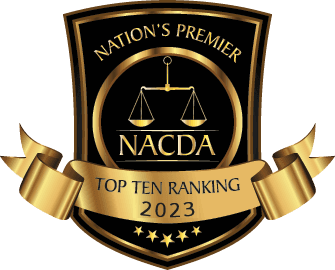
Miami Drug Paraphernalia Attorney
Defend Your Future Against Drug Paraphernalia Allegations
Possession of drug paraphernalia is a common misdemeanor offense which most likely accompanies a drug possession charge.
Some objects used as drug paraphernalia are bongs, water pipes, scales, pipes, and syringes.
It is rather challenging to prove that paraphernalia is possession with the intention of drug use. However, Florida law considers specific components when establishing whether the item in question is drug paraphernalia.
Get started on your case today. Contact us for your free consultation.
In determining whether an object is drug paraphernalia, the following factors are considered:
- Statements by an owner or by anyone in control of the object concerning its use.
- The proximity of the object, in time and space, to a direct violation of this act.
- The proximity of the object to controlled substances.
- The existence of any residue of controlled substances on the object.
- Direct or circumstantial evidence of the intent of an owner, or of anyone in control of the object, to deliver it to persons who he or she knows, or should reasonably know, intend to use the object to facilitate a violation of this act. The innocence of an owner, or of anyone in control of the object, as to a direct violation of this act shall not prevent a finding that the object is intended for use, or designed for use, as drug paraphernalia.
- Instructions, oral or written, provided with the object concerning its use.
- Descriptive materials accompanying the object which explain or depict its use.
- Any advertising concerning its use.
- The manner in which the object is displayed for sale.
- Whether the owner, or anyone in control of the object, is a legitimate supplier of like or related items to the community, such as a licensed distributor of or dealer in tobacco products.
- Direct or circumstantial evidence of the ratio of sales of the object or objects to the total sales of the business enterprise.
- The existence and scope of legitimate uses for the object in the community.
- Expert testimony concerning its use.
Understanding Drug Paraphernalia Use and Possession Laws
It is unlawful for any person to use, or to possess with intent to use, drug paraphernalia:
- To plant, propagate, cultivate, grow, harvest, manufacture, compound, convert, produce, process, prepare, test, analyze, pack, repack, store, contain, or conceal a controlled substance in violation of this chapter.
- To inject, ingest, inhale, or otherwise introduce into the human body a controlled substance is in violation of this chapter.
Any person who violates this subsection is guilty of a misdemeanor of the first degree, punishable as provided in s. 775.082 or s. 775.083.
Legal Consequences For Manufacturing or Delivering Paraphernalia
It is unlawful for any person to deliver, possess with intent to deliver, or manufacture with intent to deliver drug paraphernalia, knowing, or under circumstances where one reasonably should know, that it will be used:
- To plant, propagate, cultivate, grow, harvest, manufacture, compound, convert, produce, process, prepare, test, analyze, pack, repack, store, contain, or conceal a controlled substance in violation of this act.
- To inject, ingest, inhale, or otherwise introduce into the human body a controlled substance in violation of this act.
Any person who violates this subsection is guilty of a felony of the third degree, punishable as provided in s. 775.082, s. 775.083, or s. 775.084.
Penalties for Delivering Drug Paraphernalia to Minors
Any person 18 years of age or over who violates subsection two by delivering drug paraphernalia to a person under 18 years of age is guilty of a felony of the second degree, punishable as provided in s. 775.082, s. 775.083, or s. 775.084.
It is unlawful for any person to sell or otherwise deliver hypodermic syringes, needles, or other objects which may be used, are intended for use, or are designed for use in parenterally injecting substances into the human body to any person under 18 years of age, except that hypodermic syringes, needles, or other such objects may be lawfully dispensed to a person under 18 years of age by a licensed practitioner, parent, or legal guardian, or by a pharmacist pursuant to a valid prescription for same. Any person who violates the provisions of this paragraph is guilty of a misdemeanor of the first degree, punishable as provided in s. 775.082 or s. 775.083.
Transportation of Drug Paraphernalia
It is unlawful to use, possess with the intent to use, or manufacture with the intent to use drug paraphernalia, knowing or under circumstances in which one reasonably should know that it will be used to transport:
- A controlled substance in violation of this chapter
- Contraband as defined in s. 932.701(2)(a)1.
Any person who violates this subsection commits a felony of the third degree, punishable as provided in s. 775.082, s. 775.083, or s. 775.084.
Advertisement of Drug Paraphernalia and Its Legalities
It is unlawful for any person to place an advertisement in any newspaper, magazine, handbill, or other publication, knowing, or under circumstances where one reasonably should know.
The purpose of the advertisement, in whole or in part, is to promote the sale of objects designed or intended for use as drug paraphernalia. Any person who violates this subsection is guilty of a misdemeanor of the first degree, punishable as provided in s. 775.082 or s. 775.083.
A knowledgeable drug paraphernalia attorney in Miami can help you determine your next best steps for moving forward.
To learn more about your situation and how we can help you, call Law Office of Armando J. Hernandez, P.A. at (305) 400-0074 or contact us online to speak with our Miami drug crimes lawyer.















